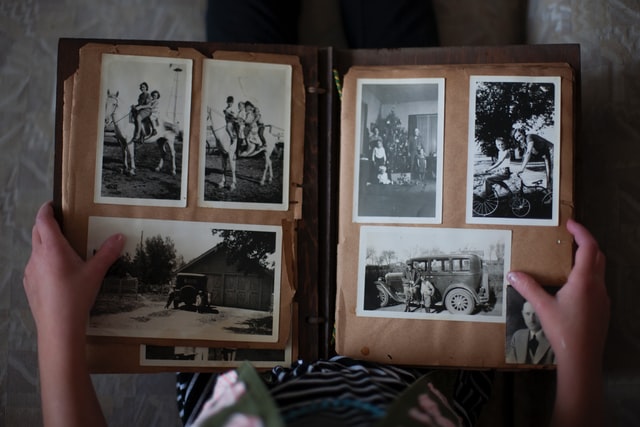Written by: Milica Bokšan
At some point, you might have thought: Serbian grammar is maybe difficult, but at least I don’t need to deal with conditionals!
Well… 🙂
Actually, the Serbian language has its Serbian conditional tense.
But don’t worry, we will explain it to you very briefly, so you can use it easily.
Let’s start right away!
What is the Serbian Conditional Tense
The Serbian conditional tense is called Potencijal.
The name is derived from the Latin word potentialis which means possibility or strength.
It is also called kondicional (lat. conditionalis meaning conditionally) just like in English.
The third name for this verb form is pogodbeni način (= contractual mode).
However, it is enough to know one name of the Serbian conditional tense, and that is Potencijal.

Form of the Serbian Conditional Tense
Before we continue, you should know that the Serbian language has simple and complex verb forms.
Simple verb forms are made from only one verb, and complex verb forms from two or more verbs.
Potencijal is one of the complex verb forms.
Its form looks like this:
auxiliary verb biti (to be) in its past form (aorist) + the main verb in its participle form*
*Serbian tense Potencijal is similar to the English second conditional and its construction: “would” + main verb.
What Do You Need to Learn Structure of Serbian Conditional Tense?
The easiest way to learn Potencijal (or any other complex verb form) is to first learn the verb forms from which it is built.
These are:
- the past tense (aorist) of the auxiliary verb biti (= to be)
- past participle (radni glagolski pridev) of the main verb
The Past Tense of the Auxiliary Verb BITI
Aorist is similar to the preterite. It refers to past events.
It is not so common in speech today, so it is considered archaic. However, it is still used in the construction of certain verb forms, such as Potencijal.
Here is a conjugation of the verb biti in the aorist.
Singular:
- Ja bih (= I would)
- Ti bi (= You would)
- On/ona/ono bi (= He/she/it would)
Plural:
- Mi bismo (= We would)
- Vi biste (= You would, formal/plural)
- Oni/one/ona bi (= They would)
If this is easy for you, try to change the verb ‘to be’ through other Serbian tenses!
The past participle of the main verb
Radni glagolski pridev (RGP) is another Serbian verb form, but it isn’t a verb tense.
It’s like Serbian participle.
First, we will write the infinitive (the basic form of the verb) and then its participle.
For example:
- Infinitive of the verb Pevati (= to sing) → Pevao/pevala (= sung)*
- Infinitive of the verb Videti (= to see) → Video/videla (= seen)*
*When you translate Potencijal in English, the main verbs wouldn’t be ‘sung and seen’ (a literal translation is used here). It will be translated as an infinitive of the verb.
We covered more in detail how to make RGP in our article about the Serbian past tense.
Construction of Sentences in Serbian Conditional Tense
Let’s put all of the above into practice!
To construct a sentence in Potencijal, you need to combine the adequate form of the auxiliary verb biti with the past participle of the main verb.
For example:
Singular:
- Ja bih pevao/pevala (= I would sing)
- Ja bih video/videla (= I would see)
- Ti bi pevao/pevala (= You would sing)
- Ti bi video/videla (= You would see)
- On bi pevao / Ona bi pevala / Ono bi pevalo (= He/she/it would sing)
- On bi video / Ona bi videla / Ono bi videlo (= He/she/it would see)
Plural:
- Mi bismo pevali/pevale (= We would sing)
- Mi bismo videli/videle (= We would see)
- Vi biste pevali/pevale (= You would sing)
- Vi biste videli/videle (= You would see)
- Oni bi pevali / One bi pevale / Ona bi pevala (= They would sing)
- Oni bi videli / One bi videle / Ona bi videla (= They would see)

Note: When we conjugated the verb ‘to be’ depending on the person, you could notice that we wrote ‘he/she/it would’.
While here, we wrote a separate verb for each third person. This is because the Serbian language distinguishes between genders and the active verb adjective changes according to the gender.
So, the ending of the verb will depend on whether it is a male or female person, or a child or cub (they have neutral gender).
Usage of Serbian Conditional Tense
Potencijal is very often used in the Serbian language. It has several usages.
The most common are:
- Hypothetical situations
It is usually used when we want to mention some hypothetical situation which cannot happen or isn’t likely to happen.
For example:
Da sam na tvom mestu, ne bih čekao da počnem sa učenjem za ispit. (= If I were you, I wouldn’t wait to study for the exam.)
Kada bismo požurili, stigli bismo na vreme. (= If we hurried, we would arrive on time.)

- Wishes and desires
We can use it to talk about something we want to do or happen.
For example:
Voleo bih da obiđem svet. (= I would love to travel the world.)
Marija je rekla da bi želela da popriča sa tobom. (= Maria said that she would like to talk with you.)
- Polite requests
We use the Serbian conditional tense to ask for something politely.
For example:
Želela bih čašu vode. (= I would love a glass of water.)
Da li bih mogla da pogledam tvoj CV? (= Could I have a look at your CV?)
- Intentions
If we intend to do something, we can also use the potencijal to express that intention.
For example:
Išla sam u Pariz samo da bih videla Mona Lizu. (= I went to Paris just to see the Mona Lisa.)
Izašao sam iz kuće da bih udahnuo malo svežeg vazduha. (= I left the house to get some fresh air.)
To Sum Up
Don’t let this amount of examples and information scare you off. They are actually there to help you understand this verb form as much as possible!
Give yourself time to read the text several times and absorb everything you read.
If you want to continue learning Serbian and practising Serbian grammar using interesting exercises and material, you can schedule your Serbian lessons online here!



